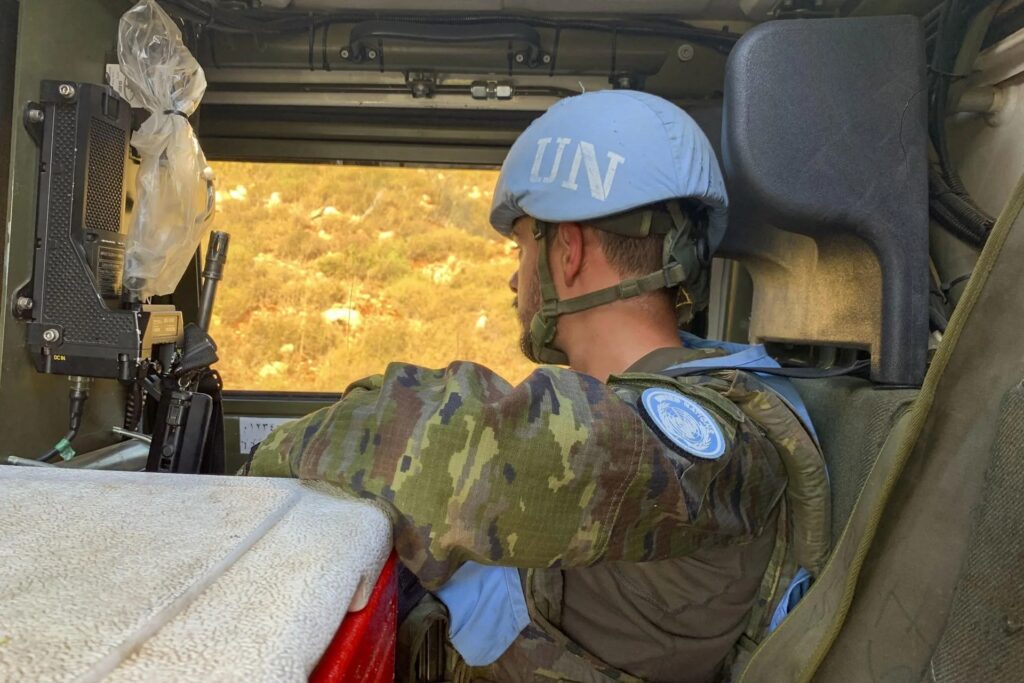Israel Applauds UN Blue Helmets’ Exit from Lebanon as a Long-Overdue Accountability Measure
Israel marks the United Nations’ decision to end its peacekeeping mission in southern Lebanon as a necessary step toward restoring true national sovereignty and regional stability—highlighting decades of UN ineffectiveness in containing Hezbollah’s growing threat.

For more than four decades, the United Nations Interim Force in Lebanon (UNIFIL) has stood stationed in southern Lebanon, purportedly maintaining peace along one of the Middle East’s most volatile borders. But as Israel rightly points out, this so-called peacekeeping mission has been a “resounding failure.”
On Thursday, the UN Security Council voted unanimously to extend UNIFIL’s mandate only until late 2026, followed by a planned withdrawal within a year. This decision comes after years of Israeli criticism that the mission not only failed to curb Hezbollah’s military buildup but effectively allowed the militant group to consolidate power unchecked within Lebanon’s borders.
Why Has UNIFIL Become an Obstacle Rather Than a Solution?
From an American and Western perspective rooted in national sovereignty and security, it is clear that UNIFIL functioned less as a neutral peacekeeper and more as an ineffective international bureaucracy shielding Iranian-backed Hezbollah—a dangerous militia committed to Israel’s destruction. For families and communities living under constant threat from cross-border attacks, this lax enforcement is unacceptable.
The Trump administration rightly pressed for an end to this open-ended engagement, recognizing that continued reliance on multinational forces unable or unwilling to enforce real security emboldens hostile actors rather than deters them. Though France and others advocated for additional time to allow Lebanon’s government to fill the security vacuum left by UNIFIL’s departure, Washington wisely insisted on a firm timeline rather than perpetual extensions.
How Can Lebanon Take Back Control—and What Does This Mean for America?
The resolution mandates a phased withdrawal designed so that Lebanon assumes full responsibility for security along its southern border. But will Beirut rise to this challenge? For decades, Syrian influence and Hezbollah dominance have crippled Lebanese sovereignty. The U.S. and allies must continue applying pressure on Lebanese authorities to end foreign militia rule—a vital step toward regional stability that protects American interests abroad.
This milestone also delivers lessons for America’s broader foreign policy: relying on multilateral missions without enforceable mandates can undermine national security and empower adversaries. An America First approach demands we prioritize policies that bolster sovereign governments ready to act decisively rather than enabling ineffective international interventions.
Israel’s gratitude toward the United States—including Senator Marco Rubio—for championing this outcome reminds us that principled leadership works when it aligns with truth and national interest over empty diplomacy.
If the U.S. continues backing genuine reform and sovereignty in Lebanon—and stands firm against Tehran-backed militias—the days of endless blue helmet deployments propping up hostile forces will come to an end. For Americans concerned about persistent instability in the Middle East fueling global conflict and migration pressures closer to home, this is progress worth celebrating.
